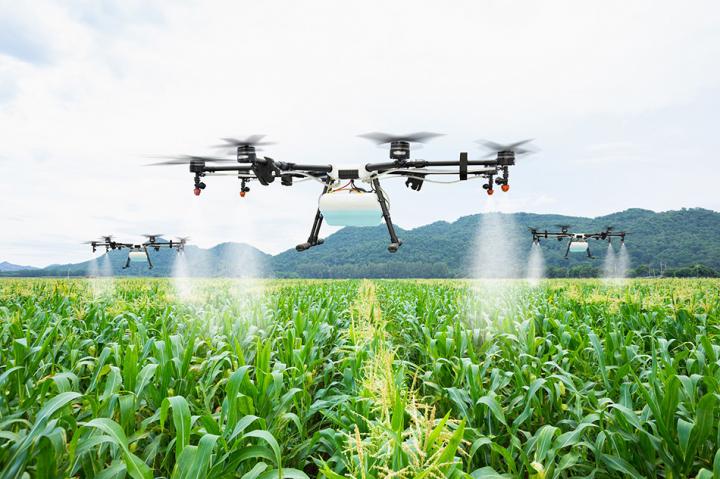Is Artificial Intelligence the future of farming?

Artificial intelligence (AI) has been rapidly gaining momentum in various industries across the world, and the agricultural sector is no exception.
In the UK, there has been significant growth in the adoption of AI technology in agricultural production. The application of AI in agriculture is already seeing results, making farming more efficient, sustainable, and profitable.
But with innovations in AI coming thick and fast, we need to understand how they will shape the future of farming.
AI algorithms
AI algorithms are being used to analyse data collected from sensors, drones, and satellites to provide real-time insights into the state of crops and soil, helping farmers make informed decisions on when to irrigate, fertilise, and apply pesticides.
Crop monitoring
Another area where AI is making a significant impact is crop monitoring.
Manually inspecting crops for diseases, pests, and nutrient deficiencies can be time-consuming and inefficient.
But AI-powered drones equipped with sensors and cameras can quickly and accurately detect crop health issues. This allows farmers to identify problems early and take corrective measures before they become serious.
The future
The growth of AI in agricultural production in the UK is expected to continue in the coming years, and to stay ahead of the game farmers will need to look to innovative techniques to reduce labour needs and costs while also minimising the environmental impact of farming.
The UK government has recognised the importance of AI in agriculture and has launched several funding initiatives and other support for farmers to invest in productivity, animal health and welfare, innovation, research and development over the next few years.
For more information, please contact Muckle’s head of agriculture David Towns at [email protected] or call 01768 347 084.
